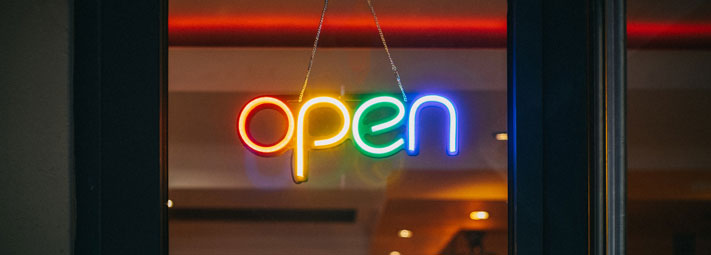
Location
To fully include everyone in our music activities, we need to understand the barriers that stop people from attending, taking part or progressing. In the Conversation about inclusion series of events, hear about the issues from the perspective of those who directly experience barriers and discuss what we can do to change things from within our own music groups.
In this conversation, we’ll be talking about sheet music, and music notation. Is being able to read the dots necessary to being in your group or do you use other learning methods? Does supporting people to learn this skill make their music making more successful and enjoyable? What about those who experience barriers to reading and using sheet music – Could you change something about the way your group learns and prepares for performance that would support them? We’ll be talking about some of the practical and technological solutions that musicians and music leaders use, and want to hear from you if you have tried something that works for you and your group.
We’d like to have a wide variety of members in this conversation; From groups who learn and perform long, complex pieces of music, where players and singers being able to quickly read and interpret sheet music seems essential. And from members in other styles of groups – like community choirs – whose intention is to bring in those who are new to music making, and who use ways of learning without notation.
Our speakers for this session include:
Kristl Kirk - a member of the British Dyslexia Association Music Committee who has recently completed doctoral research in the area of music and dyslexia at the University of York. She’ll be talking about some practical solutions that dyslexic musicians have found, that draw on their strengths.
Andre de Silva is the Musical Director of Out Sing Cancer Choir (who took part in our learning project INCLUDE) and a PhD student at the University of Chichester. He’ll be talking about why teaching a community choir to use sheet music has improved their choir experience as well as their performance.
We’d also like to talk about: how using notation learning apps like Earmaster help beginner readers, and how blind and partially sighted people learn longer pieces of music. Please come with insights on these and any other thoughts on this topic.
This event will not be recorded and our team will lead the conversation so you are supported to share your thoughts and experiences.
We'll talk about:
- The musical environments where being able to read sheet music is an advantage – and when it can be an unnecessary barrier to including new people.
- How to support people to learn the skill of reading notation, and the musical benefits
- The barriers that some people experience to learning to read and use sheet music – and some solutions that work.
- Other methods of learning pieces of music to performance standard.
- Anything else that comes up on the topic!
There will be an opportunity to ask questions via the chat function during the event.
Who this event is for: All leisure-time music makers and activity organisers with an interest in this topic are welcome to attend, and there will be an opportunity to ask questions and engage in the discussion.
Cost: FREE for members
We will be using Zoom to host the meeting, and will send the joining link by email, two days and again two hours before the event is due to start.
Please read the event information below before reserving your place.
Registration for this event closes at 8am on 27/06/25.
Event information:
- This event will be mainly discussion-focused
- Questions will be taken via the chat function at this event
- Automated closed captions (subtitles) will be available at this event. If you require live captioning, please contact us to request this
Expected event schedule:
- 10.00am: welcome and how we will use the Zoom features during the event
- 10.05am: event topic
- 11.00am: finish
Timings may vary on the day.
Recording information:
We do not plan to record this event.
Inclusivity statement:
We aim to make our events as accessible as possible. If you have any particular accessibility requirements or if there is anything else we can do to help make the event a better experience for you, please let us know.
Cancellation policy:
Making Music reserves the right to cancel an event due to low attendance numbers, adverse weather conditions or other circumstances which make it no longer possible to run the event.





